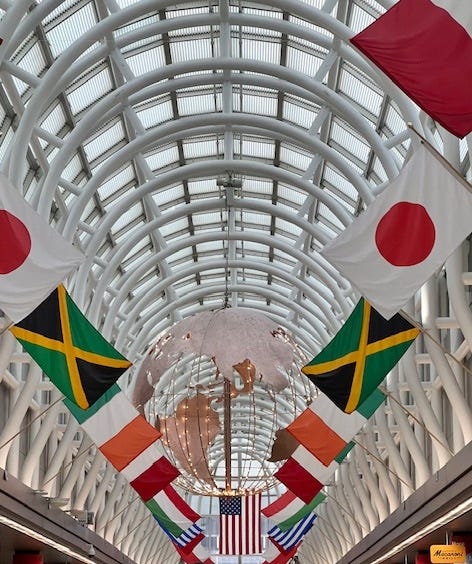Detecting the Counterfeit: Lies, Flimflam and the Real Deal
The swirl of political events spin in the headlines relating to wars and conflict, profound misdeeds, voting manipulations, deceit among leaders, all having profound consequences in my country and others.
I found myself typing words to focus my thoughts—lies, truth, love, counterfeit…Counterfeit, a word and idea to explore. “Counterfeit—An imitation intended to be passed off fraudulently or deceptively as genuine.”
How does one tell the truth from a lie, the real from the counterfeit in history, politics, and life? Is the answer only subjective, determined by what one wants to see and believe, an illusion propped up by those who agree with us or alternatively those who claim power over us? Such is the path of authoritarian regimes who rewrite history and events as they want them to be seen and recorded, who remove books, and therefore ideas, from the shelves, and eventually close down or limit free expression.
The best way to detect a counterfeit is to know the genuine article and have it at hand to compare. For example with currency, the U.S. Treasury goes to great lengths to make counterfeiting extremely difficult because of the intricacies in design and production. The texture and composition of the cotton and linen paper is unique with tiny red and blue micro-fibers embedded and with slightly raised printing and with color-shifting ink on larger bills when tilted towards the light, with numerals in the lower right that change color from copper to green, and a 3-D security ribbon on the $100 bills woven into the paper causing images of bells to move up and down or side to side within the ribbon.
Holding a bill to the light reveals some of these hidden features. Some bills have watermarks to the right of the portrait visible on both sides when held to light. Also, micro printed words such as USA are on certain bills, and all have exact detailed printing especially on the borders and seal.
The list continues of what is necessary for a bill to in fact be genuine U.S. currency. However, not everyone is vigilant when accepting currency, and these lapses of attention are what the fraudster is counting on when passing counterfeit money.
The safeguards in a democracy are equally fine-tuned and time-tested. These include rule of law, due process, independent judiciary, equal justice, free and fair elections, robust checks and balances on executive power, freedom of expression and the press, counters to disinformation and promotion of civic engagement. But if these safeguards are set aside or ignored, the real democracy will fade, and a counterfeit will emerge. In numbers of counterfeit democracies like Russia and Venezuela, elections are held but manipulated; opposition candidates are discouraged or even killed; the press is constrained, journalists detained or also killed, and the law is subject to the opinion of the ruler: “If I say it’s law, it is law.”
Freedom House, the U.S.-based non-governmental organization notes in its Principles for Safeguarding U.S. Democracy “…The United States, as the world’s most influential democracy, has an essential part to play in the global struggle for liberty. It has a unique capacity and a moral obligation to cultivate alliances with free nations and lend support to democracy advocates in authoritarian or transitional settings. Doing so ultimately protects the freedom, security, and prosperity of Americans by promoting a stable international order, preventing armed conflicts and failed states, and ensuring the support of like-minded global powers. The United States cannot play this role if the country’s own democratic institutions continue to erode, as it will not have the internal capacity or the international credibility.”

If citizens cease paying attention, if voices are silenced, if certain voters are hindered from voting, if rule of law is set aside and ignored, if courts fail to uphold laws and immunity gives unchecked power to the executive, then the counterfeit of democracy slips into place. The challenge for a counterfeit democracy is that it doesn’t have the true power of its citizens engaged. If counterfeit currency floods a country’s system, the value of the real currency becomes worthless, and runaway inflation results. A democracy which has lost its freedoms has lost its power.
“The truth will set you free,” the Bible assures, because real power derives only from what is true.